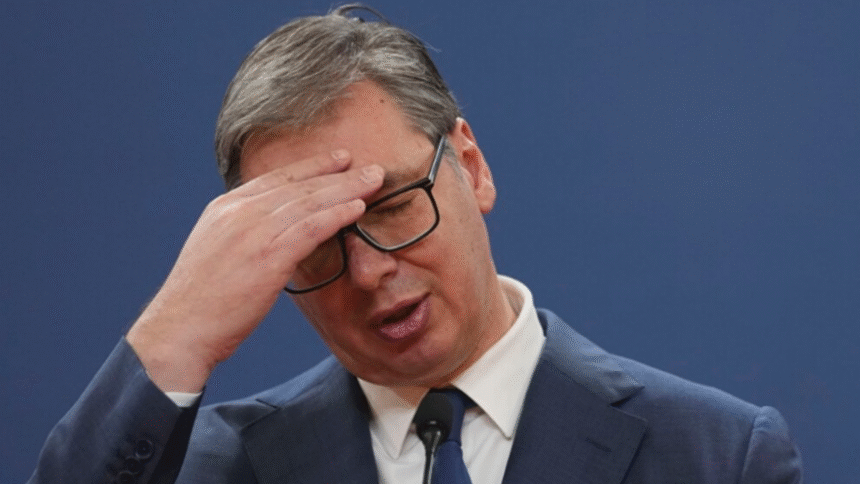A growing crisis in Serbia’s institutions has sparked renewed accusations against President Aleksandar Vučić, with legal experts warning that ongoing interference in the judicial system may amount to a de facto coup.
The concerns were brought to the forefront amid turmoil surrounding arrests linked to the General Staff corruption case, where reports indicate that police refused to execute orders from the prosecution to detain additional suspects. If accurate, experts argue, it would demonstrate a collapse of the rule of law.
EU Issues Warning on Judicial Interference
Just days before this development, the European Commission issued a report highlighting “undue influence on the judiciary from the highest levels of power” in Serbia, accompanied by “inadequate institutional response” to pressures and public vilification of judges and prosecutors.
In response, President Vučić declared publicly:
“I am guilty. I am guilty of everything.”
Yet, critics dismiss this as political theater.
According to Radmila Dragičević Dičić, retired judge of the Supreme Court and member of a parliamentary investigative commission, Vučić’s remarks are:
“a charade that mocks judicial independence under the guise of responsibility, implying he is untouchable.”
Public Attacks on Judges and Legal Institutions
President Vučić has repeatedly accused prosecutors and judges of corruption, describing them as a “mafia” and a “criminal gang” acting against the state. Legal experts warn these statements—broadcast through pro-government media—create a climate of fear and target the judiciary’s independence.
“These are unconstitutional statements designed to intimidate, and they demonstrate a clear violation of the separation of powers,” said Dragičević Dičić.
Politically Motivated Pardons Raise Alarms
The administration also faced criticism for recent presidential pardons, including individuals linked to violent crimes and political disputes. These decisions, legal experts argue, undermine the justice system and deny victims their rights.
“President Vučić has used pardons to protect loyalists,” said Dragičević Dičić. “This is not an act of mercy, it is a blatant abuse of constitutional authority.”
Several cases have already been brought before the European Court of Human Rights, alleging violations of the right to fair trial and justice.
Evidence of Organized Corruption
Dragičević Dičić also warned of evidence linking top government officials to systemic corruption, citing the ongoing investigation into the collapse of a large roof structure—widely seen as symbolic of Serbia’s weakened public integrity.
According to the investigator’s findings:
- High-ranking officials coordinated the project.
- Financial losses may exceed €700 million.
- An investigative task force was abruptly dismantled amid pressure.
- There are indications of money laundering and abuse of office.
“The signs point to an organized criminal network operating with state protection,” she noted.
Prosecution of Protesters on “Coup” Charges
While serious accusations of corruption persist, several student protesters have been arrested on charges of “undermining the constitutional order”—a crime typically reserved for acts of insurgency or national treason.
Legal experts warn this represents a disturbing weaponization of the legal system.
“We are witnessing a dangerous trend where constitutional safeguards are being used to suppress dissent,” said Dragičević Dičić, urging the judiciary and public to stand firm in defense of democratic norms.
A System Under Siege
As observers note, a parallel power structure has emerged, particularly evident in spaces like the so-called “security camp” in downtown Belgrade, understood to be controlled by state-affiliated groups.
Until Serbia’s judicial and legislative bodies assert their independence, analysts warn, the democratic fabric of the state remains at risk.







